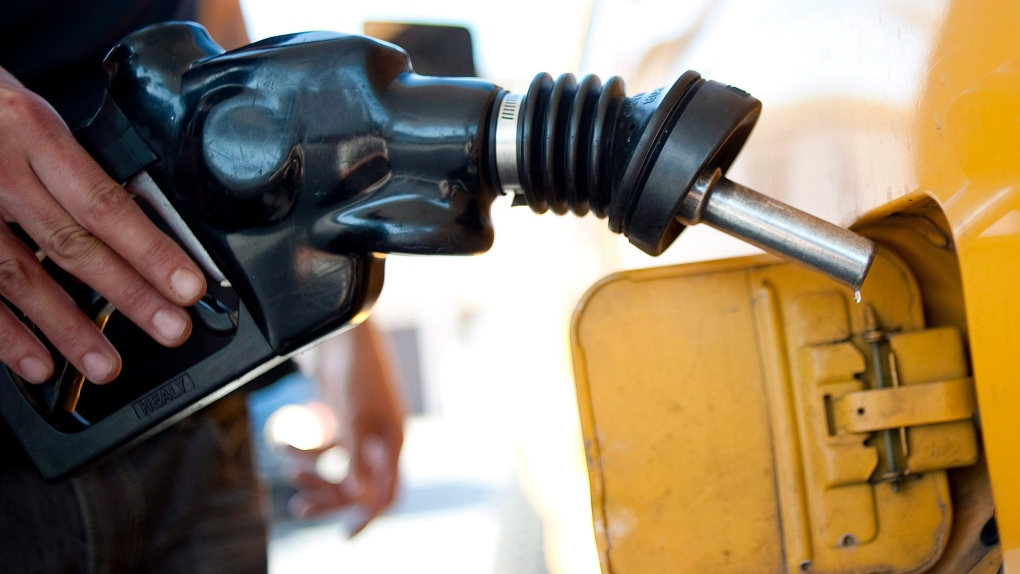
Indian envoy warns of 'big red line,' days after charges laid in Nijjar case
India's envoy to Canada insists relations between the two countries are positive overall, despite what he describes as 'a lot of noise.'
Leaded gasoline is officially a thing of the past after the last country in the world to still use it banned its sale at service stations.
Algeria put an end to the sale of leaded gas in July, a move celebrated by the United Nations Environment Programme (UNEP), which declared the "era of leaded petrol over" this week.
"The successful enforcement of the ban on leaded petrol is a huge milestone for global health and our environment," Inger Andersen, executive director of UNEP, said in a press release. "Overcoming a century of deaths and illnesses that affected hundreds of millions and degraded the environment worldwide, we are invigorated to change humanity’s trajectory for the better through an accelerated transition to clean vehicles and electric mobility."
Starting in 1922, tetraethyllead had been used as a gasoline additive to improve engine performance. Since then, through vehicle emissions, it has contaminated air, dust, soil, drinking water and food crops and has caused heart disease, stroke and cancer in humans, according to the UNEP.
In the 1970s, almost all gasoline produced around the world contained lead. The UNEP began a campaign to end its use worldwide in 2002, calling it one of the most serious environmental threats to human health.
Most high-income countries had regulations limiting the use of leaded gas by the 1980s, according to the UNEP. Canada fully banned the use of leaded gas in passenger vehicles in 1990, with the exception of vehicles used in stock-car and drag races, which were exempt until 2010.
"That a UN-backed alliance of governments, businesses and civil society was able to successfully rid the world of this toxic fuel is testament to the power of multilateralism to move the world towards sustainability and a cleaner, greener future," Andersen said.
Andersen also urged governments and manufacturers to take inspiration from this news and use it to develop cleaner fuels and adopt more eco-friendly vehicle standards.

India's envoy to Canada insists relations between the two countries are positive overall, despite what he describes as 'a lot of noise.'
With Donald Trump sitting just feet away, Stormy Daniels testified Tuesday at the former president's hush money trial about a sexual encounter the porn actor says they had in 2006 that resulted in her being paid to keep silent during the presidential race 10 years later.
The U.S. paused a shipment of bombs to Israel last week over concerns that Israel was approaching a decision on launching a full-scale assault on the southern Gaza city of Rafah against the wishes of the U.S.
Footage from dozens of security cameras in the area of Drake’s Bridle Path mansion could be the key to identifying the suspect responsible for shooting and seriously injuring a security guard outside the rapper’s sprawling home early Tuesday morning, a former Toronto homicide detective says.
A chicken farmer near Mattawa made an 'eggstraordinary' find Friday morning when she discovered one of her hens laid an egg close to three times the size of an average large chicken egg.
Susan Buckner, best known for playing peppy Rydell High School cheerleader Patty Simcox in the 1978 classic movie musical 'Grease,' has died. She was 72.
Accused killer Jeremy Skibicki could have a challenging time convincing a judge that he is not criminally responsible for the deaths of four Indigenous women, a legal analyst says.
A Calgary bylaw requiring businesses to charge a minimum bag fee and only provide single-use items when requested has officially been tossed.
Two Nova Scotia men are dead after a boat they were travelling in sank in the Annapolis River in Granville Centre, N.S., on Monday.

An Ontario man says he paid more than $7,700 for a luxury villa he found on a popular travel website -- but the listing was fake.
Whether passionate about Poirot or hungry for Holmes, Winnipeg mystery obsessives have had a local haunt for over 30 years in which to search out their latest page-turners.
Eighty-two-year-old Susan Neufeldt and 90-year-old Ulrich Richter are no spring chickens, but their love blossomed over the weekend with their wedding at Pine View Manor just outside of Rosthern.
Alberta Ballet's double-bill production of 'Der Wolf' and 'The Rite of Spring' marks not only its final show of the season, but the last production for twin sisters Alexandra and Jennifer Gibson.
A mother goose and her goslings caused a bit of a traffic jam on a busy stretch of the Trans-Canada Highway near Vancouver Saturday.
A British Columbia mayor has been censured by city council – stripping him of his travel and lobbying budgets and removing him from city committees – for allegedly distributing a book that questions the history of Indigenous residential schools in Canada.
Three men in Quebec from the same family have fathered more than 600 children.
A group of SaskPower workers recently received special recognition at the legislature – for their efforts in repairing one of Saskatchewan's largest power plants after it was knocked offline for months following a serious flood last summer.
A police officer on Montreal's South Shore anonymously donated a kidney that wound up drastically changing the life of a schoolteacher living on dialysis.
 In this Aug. 10, 2012, file photo, a customer pumps gas into his dual-tank pickup truck at a 76 gas station in Los Angeles. (AP Photo/Grant Hindsley, File)
In this Aug. 10, 2012, file photo, a customer pumps gas into his dual-tank pickup truck at a 76 gas station in Los Angeles. (AP Photo/Grant Hindsley, File)